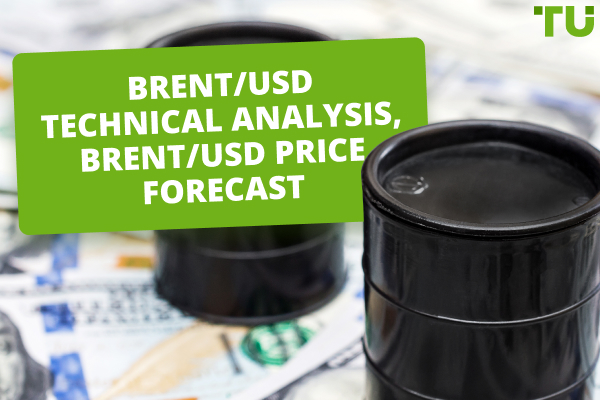How to use Forex trading signals
In a market that is constantly changing and moving quickly, like the Forex market, traders are searching for the finest information that would enable them to predict price changes before they occur. This is why Forex trading signals are employed. Forex signals are alerts that you can use to trade online. They give you the most up-to-date market information about trading opportunities on important foreign exchange rate pairs.
New traders often use Forex signals to improve their trading experience and increase their chances of success. The Traders Union will explain these Forex trading signals to you today, including how to read and comprehend them and their potential benefits and drawbacks in your trading endeavors.
What are trading signals
Trading signals are data points generated by analysis of market conditions that indicate it might be a good time to buy or sell an asset. They are often used by technical analysts to identify trends and make informed trading decisions. Trading signals can be generated from a variety of sources, such as chart analysis using technical indicators, or from mathematical algorithms that take into account market action and other factors.
Trading signals can provide a convenient way for traders to save time and make profitable decisions in real-time, without having to manually monitor and analyze market conditions. In the forex markets, trading signals are often provided in the form of price alerts to identify potential entry or exit points for trading currency pairs. These signals can help traders determine whether a particular pair is worth trading and how much profit they may be able to generate.
Trading signals and trading alerts are similar in the sense that they both provide information to help traders make informed decisions. The difference is that a trading signal is generated by analysis of market conditions and provides a specific buy or sell recommendation, while a trading alert is more of a general notification to inform traders of an event or other market development that could affect their trades.
How to read and understand Forex trading signals
When it comes to trading, understanding and reading Forex trading signals is essential for success. Forex trading signals provide information about the current market situation and can help traders make informed decisions about their next move. It is important to remember that while trading signals can be helpful, they are not foolproof and should only be used as a guide. As with any form of trading, traders should still conduct their own research and analysis before making a trade.
Here are some tips on how to read and understand Forex trading signals:
Understand the market conditions - The first step to reading Forex trading signals is to understand the current market conditions. This includes understanding what is driving the market, including any news or rumors that may be influencing prices.
Analyze the signal - Once you have a basic understanding of the market, you can analyze the signal that is being sent. Look at the type of signal that is being sent, the timeframe in which it was sent, and any other relevant information.
Research - Research is key when it comes to trading. After analyzing the signal, make sure to do your own research and analysis to determine if it is a good idea to make the trade.
Make a decision - Once you have done your research, it is time to make a decision. Be sure to weigh the risks and rewards associated with a trade before making it.
What are the pros and cons of relying on Forex signals?
In a market like forex, which moves quickly and is always changing, traders look for the best information that will help them predict price changes before they happen. Forex trading signals are used to do just this, though you can never be sure of the results and your trading strategy will affect how much money you can make with these signals.
Here are some of the most important pros and cons of using these signals to guide your trading.
Pros:
Trading signals are customizable
Every trader has their preferred way to open and close trades, and they may feel uncomfortable figuring out their risk or profit. Additionally, many traders decide on a particular trading method based on their prior performance and comfort level with specific signals. In this aspect, Forex trading signals can help your chosen trading approach.
Trading signals can be tracked easily
Traders can utilize signals to keep an eye out for trading opportunities even when they aren't actively tracking a particular Forex chart. These signals can be anything from programs you sign up for to automatic messages sent by text, email, or other means.
Trading signals provide insights based on diverse chart data
Trading signals provide a wide range of insights from chart data that can be used to evaluate potential trading opportunities. This includes analyzing historical price and volume data, assessing momentum indicators, and looking for trends that may indicate the direction of future price movements. With these signals, traders can gain a better understanding of the market and make more informed decisions.
Cons:
Threat of false signals
False signals are constantly a concern with every indicator, even when employing many signals to verify trends and justify your strategy. Because traders must always be careful about executing trades, no real trader puts a big chunk of their trading capital into a single position.
Signals are an inexact science
Almost all professional Forex traders use trading signals to help them decide what to do, but there is a lot of disagreement about which signals make the most money. As a result, traders must develop a method for utilizing signals that works for them with no assurance that the plan will be profitable in the short or long run.
Best Forex brokers



FAQs
Should I pay for forex signals?
If you're looking for reliable signals that can help inform your trading decisions, then it may be worth considering paying for forex signals. While free signals may be available, they can often be unreliable or inaccurate. If you're serious about trading the forex market, then it's important to make sure you're using reliable signals.
Where do forex signals come from?
Forex signals are typically generated by a human analyst or automated Forex robot, and delivered to subscribers of a forex signal service. The signal will indicate the currency pair, suggested entry price, and time to enter the trade.
How long does a forex signal last?
A forex signal typically lasts from 5 minutes to 2-4 hours, depending on the market conditions. It is important to act quickly when receiving a signal to maximize potential profit.
Can I be profitable with forex signals?
Yes, with the right strategy and by following reliable forex signals, you can be profitable with forex trading. Copy trading is especially helpful for new traders because it lets them use the knowledge of more experienced traders. However, it is important to remember that all investments carry a degree of risk, so be sure to do your research before investing.
Glossary for novice traders
-
1
Broker
A broker is a legal entity or individual that performs as an intermediary when making trades in the financial markets. Private investors cannot trade without a broker, since only brokers can execute trades on the exchanges.
-
2
Trading
Trading involves the act of buying and selling financial assets like stocks, currencies, or commodities with the intention of profiting from market price fluctuations. Traders employ various strategies, analysis techniques, and risk management practices to make informed decisions and optimize their chances of success in the financial markets.
-
3
Forex Trading
Forex trading, short for foreign exchange trading, is the practice of buying and selling currencies in the global foreign exchange market with the aim of profiting from fluctuations in exchange rates. Traders speculate on whether one currency will rise or fall in value relative to another currency and make trading decisions accordingly.
-
4
CFD
CFD is a contract between an investor/trader and seller that demonstrates that the trader will need to pay the price difference between the current value of the asset and its value at the time of contract to the seller.
-
5
BaFin
BaFin is the Federal Financial Supervisory Authority of Germany. Along with the German Federal Bank and the Ministry of Finance, this government regulator ensures that licensees abide by eurozone laws.
Team that worked on the article
Alamin Morshed is a contributor at Traders Union. He specializes in writing articles for businesses who want to improve their Google search rankings to compete with their competition.
Ivan is a financial expert and analyst specializing in Forex, crypto, and stock trading. He prefers conservative trading strategies with low and medium risks, as well as medium-term and long-term investments. He has been working with financial markets for 8 years. Ivan prepares text materials for novice traders. He specializes in reviews and assessment of brokers, analyzing their reliability, trading conditions, and features.








